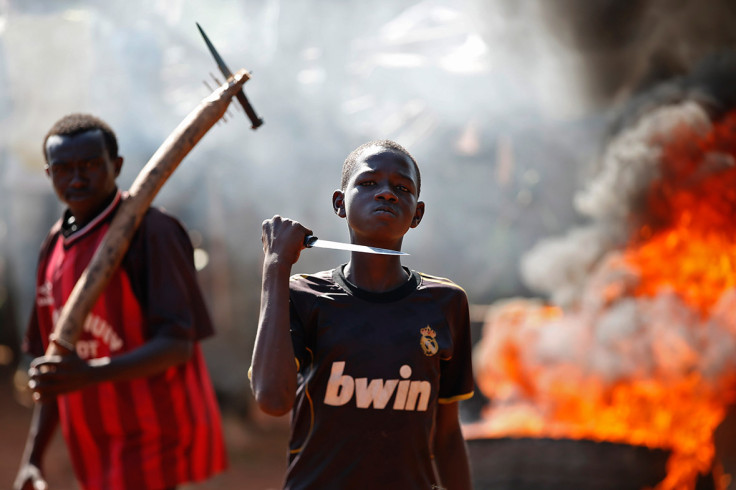Global Hunger Index: Conflict-hit Central African Republic has highest rate of undernourished people

Central African Republic (CAR) has the highest level of hunger worldwide, according to the 2015 Global Hunger Index. The report, by the International Food Policy Research Institute (IFPRI), warned that some 2.1m people – 47.7% of the population – are undernourished in the war-torn African nation, which has also one of the world's highest rates of child mortality (13%).
Researchers linked high rates of hunger to conflicts and unrest, especially in those countries where hunger remains an "alarming" or "serious" issue.
CAR descended into chaos in 2013 when leader Francois Bozize was overthrown during a coup. As a result of the political unrest, Muslim Seleka and Christian anti-Balaka militias engaged in tit-for-tat violence that has killed thousands of people and prompted hundreds of thousands to flee their homes.
Chad has the second highest rate of hunger with around 4.4m people – 34.4% of the country's population – undernourished. Chad is often targeted by Nigeria-based terror group Boko Haram, which carries out attacks targeting civilians and authorities in a bid to establish a caliphate in the region.
In 2010, Chad exited a four-year-long civil war fought between rebels and government troops that prompted the displacement of hundreds of thousands of people. However, since its independence in 1960, the country has often been torn by civil wars between its Muslim population in the north and the Christian one in the south.
The report – released in collaboration with Welthungerhilfe and Concern Worldwide – said that "calamitous famines" have almost disappeared and conflicts are the main driver of mass starvation, which is also one of the primary causes of child mortality. Researchers added that internally displaced people in war-torn countries are the most affected by food insecurity and live in worse conditions than those of people who manage to flee to other nations.
"The countries with the highest and worst Global Hunger Index scores tend to be those engaged in or recently emerged from war," the report said."The two worst-scoring countries both experienced violent conflict and political instability in recent years. In contrast, in Angola, Ethiopia, and Rwanda, hunger levels have fallen substantially since the end of the civil wars of the 1990s and 2000s."
The relation between conflict and hunger is easy to establish as hunger is a subsequent issue of a conflict
Other countries where the level of hunger is alarming are Zambia, East Timor, Sierra Leone, Haiti, Madagascar and Afghanistan. The level of hunger remains "serious" in 44 countries including Mozambique, Zimbabwe, India, Sri Lanka and Guatemala.
Although the level of hunger has diminished by 27% since 2000, the report warned that one in nine people worldwide is still chronically undernourished and mass starvation and food insecurity will not be successfully eradicated unless root causes of the problems are tackled and conflicts prevented.
Klaus von Grebmer, researcher and strategic advisor at IFPRI, told IBTimes UK: "Global hunger is still serious. The relation between conflict and hunger is easy to establish as hunger is a subsequent issue of a conflict. Markets stop functioning and people feel threatened because the situation is insecure. Hunger can be prevented by humanitarian action but there is too much going on."
Von Grebmer added that the researchers only obtained partial data from countries such as Sudan and South Sudan and lack of data from Somalia made it impossible to estimate a hunger rate in the country, ravaged by terror group al-Shabaab.
He also said that hunger can be the driver of further conflicts suggesting that food insecurity can create vicious circle of malnutrition and violence. "There is evidence that whenever you have a population that is hungry and has good access to education and media, there are uprisings. Conflicts can start with hunger."
© Copyright IBTimes 2024. All rights reserved.






